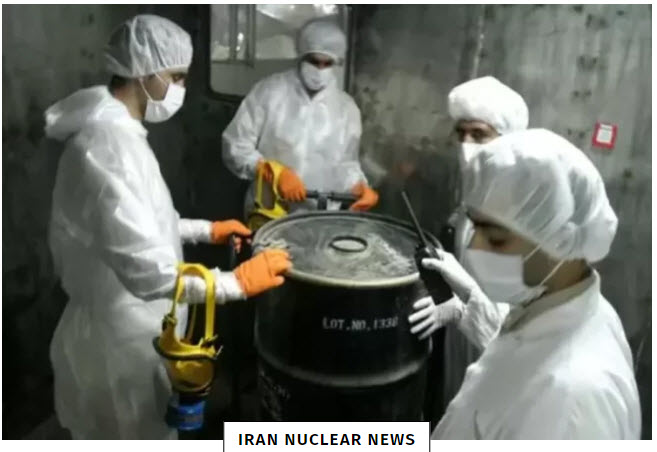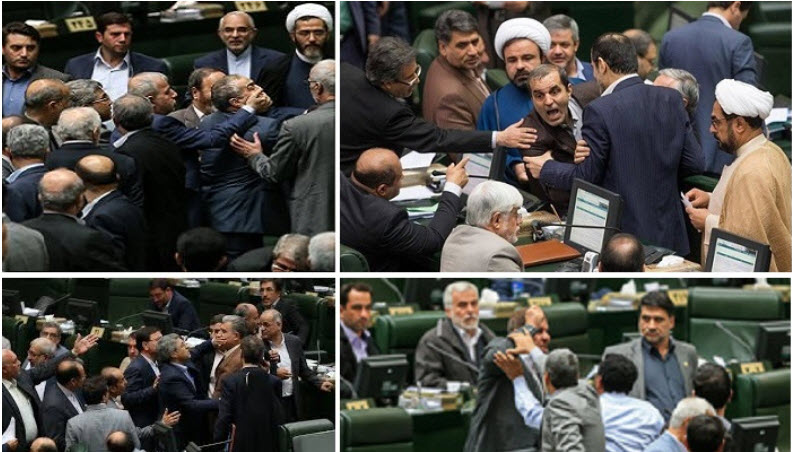
The mullahs are completely immersed in their self-created illusion, claiming that they are entitled to compensation as a result of the sanctions imposed on them while simultaneously demanding that the sanctions be lifted.
Ever since the start of the new round of nuclear talks, the Iranian regime has fought tooth and nail to convince the world that it has the upper hand and that by sticking to its red lines, it has brought the US government to its knees and gotten some significant concessions. It has even gone so far as to claim that it has managed to create a schism among the world powers. The mullahs are completely immersed in their self-created illusion, claiming that they are entitled to compensation as a result of the sanctions imposed on them while simultaneously demanding that the sanctions be lifted. The concerns expressed by the regime’s own media and experts, on the other hand, highlight the reality of the situation.
“Decision-makers need to make new assessments and calculations of new regional arrangements and orientations,” the state-run Etemad daily wrote in an article titled “Delay in the revival of the [Joint Comprehensive Plan of Action] JCPOA is dangerous.” Assessment outside of the cumbersome considerations in Iranian official circles, however, shows that the delay and hesitation in the rapid signing of the JCPOA is a loss of a historic opportunity, and the loss of this opportunity will undoubtedly lead to historical regret.”Analyzing this statement reveals the challenges officials face in reaching a consensus.

A statement signed by 250 members of the Iranian regime’s parliament and addressed to the regime’s president, Ebrahim Raisi, has revealed a new facet of the regime’s disagreements and disappointments about its future.
“In the new negotiations, the United States must guarantee a law that it will not withdraw from the JCPOA, and the issue will be adopted in a completely legal manner in its decision-making bodies such as Congress,” reads the statement. It is clear that the current US administration, or any future administration, has not guaranteed that the JCPOA will not be terminated and that any such agreement will not be approved by Congress.
“A majority in the House of Representatives opposes what Mr. Robert Malley is doing in Vienna; occasionally, they make a statement or write a letter,” Fowad Izadi, a member of the regime’s principlist faction, said in response to this. The majority Republicans and Democrats and there are now 49 to 50 Republican votes (against the negotiations) in the US Senate, for example.”
“Four to five Democratic senators have officially stated that they do not agree with the Vienna process,” he continued, “and if five or six more join the group, the US Senate will have the power to overturn any agreement you reach in Vienna.” This means it will happen the same way it did the last time.”

The majority Republicans and Democrats and there are now 49 to 50 Republican votes (against the negotiations) in the US Senate, for example.”
“One of the main conditions of negotiations is the absence of threats after the agreement,” the second paragraph of the statement read. However, the existence of a trigger mechanism implies that the threat and failure of negotiations will continue. As a result, it is critical to obtain the necessary assurances so that, if the US joins the JCPOA, the trigger mechanism will not be used under various pretexts.”
The application of the trigger mechanism in the event of a possible agreement is one of the regime’s main concerns, as can be seen from this paragraph. If the Biden administration decides to return to the 2015 JCPOA, the trigger mechanism will be available.
“Unfortunately, during the negotiations, the United States imposes new sanctions on government individuals, institutions, and agencies, which points to a destructive intention in the negotiations,” the statement reads. As a result, it is necessary to expressly prohibit the enactment and imposition of new sanctions, as well as to state that the sanctions that have been lifted will not be re-imposed.”
This clause indicates that even if nuclear sanctions are lifted, other sanctions addressing the missile program, terrorism, and human rights issues will be implemented. As a result, their temporary suspension will not benefit the regime in practice.
MEK Iran (follow us on Twitter and Facebook), Maryam Rajavi’s on her site, Twitter & Facebook, NCRI (Twitter & Facebook), and People’s Mojahedin Organization of Iran – MEK IRAN – YouTu

